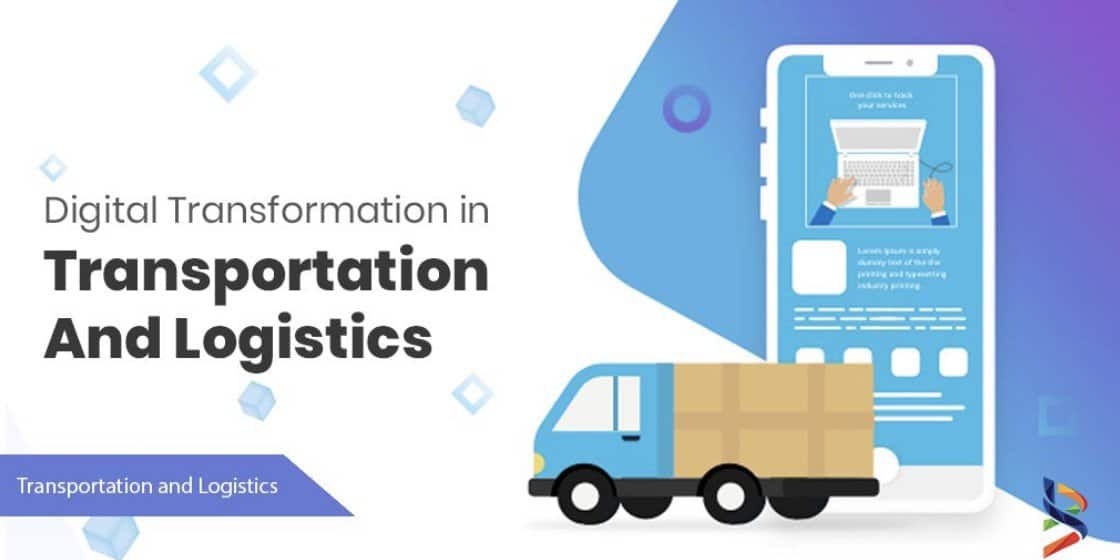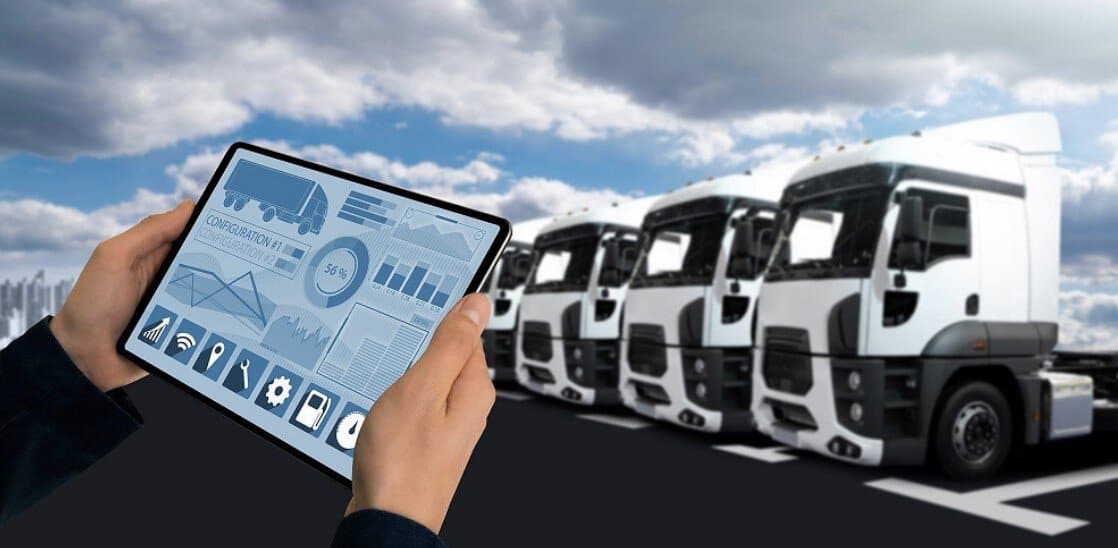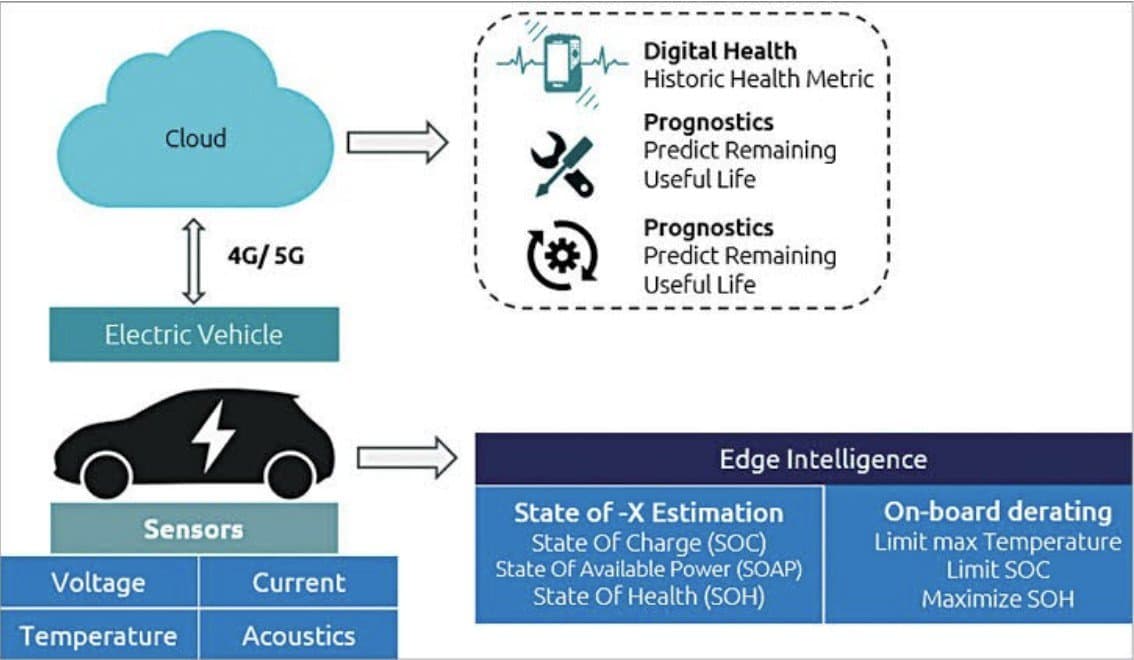
20 Mar How To Expand Your Transportation Business By Going Digital
The traditional modes of moving goods and people are undergoing a profound shift as businesses recognize the need to embrace digital tools and innovations.
Digitalization in transportation encompasses a wide array of technologies and strategies aimed at optimizing operations, enhancing customer experiences, and reducing environmental impact.
From the advent of self-driving vehicles to the implementation of real-time tracking systems, every aspect of the industry is being reshaped by digital innovation.
In this article, we dive deep into the critical areas of digital transformation within the transportation sector. From revolutionizing fleet management to leveraging battery intelligence solutions, we explore how businesses are harnessing technology to drive efficiency, improve services, and foster growth.
Moreover, we outline essential strategies for successful digital transformation, providing insights into the key factors that contribute to sustainable and impactful change.
Table of Contents
Digital transformation in transportation
With technology reshaping how goods and people are moved, transportation businesses must embrace digital tools to stay competitive and succeed in the modern era. The application of digital in transportation covers a wide range of technologies and innovations to optimize operations, enhance customer experiences, and promote sustainability. From self-driving vehicles to real-time tracking systems, the industry is experiencing a significant shift driven by digitalization.
Businesses utilize data analytics, IoT (Internet of Things), AI (Artificial Intelligence), and cloud computing to streamline processes, improve efficiency, and deliver better services. Let’s explore some crucial areas of digital transformation in the transportation industry.
-
Fleet management
Efficient fleet management is vital for transportation businesses to ensure on-time deliveries, minimize fuel usage, and optimize vehicle deployment. By employing digital solutions such as GPS tracking, route optimization software, and telematics systems, companies can gain real-time insights into their fleet operations, enabling better decision-making and resource allocation.
Automating maintenance schedules and vehicle diagnostics through IoT sensors can also help prevent breakdowns and reduce downtime, ultimately enhancing the reliability and performance of the fleet.
-
Enhancing customer experience
Transportation companies can enhance the customer journey by offering online booking platforms, mobile apps for tracking shipments, and proactive communication channels. Personalization and customization are crucial drivers of customer satisfaction.
Utilizing AI-driven algorithms and predictive analytics, businesses can anticipate customer preferences, tailor services accordingly, and provide a seamless experience from booking to delivery.
-
Improving operational efficiency
Digital transformation can significantly improve operational efficiency by automating manual processes, optimizing workflows, and reducing paperwork. Implementing ERP (Enterprise Resource Planning) systems and TMS (Transportation Management Systems) can streamline operations, enhance visibility across the supply chain, and facilitate better collaboration with partners and vendors.
Furthermore, leveraging AI and machine learning algorithms can help analyze vast amounts of data to identify inefficiencies, optimize routes, and allocate resources more effectively, leading to cost savings and increased productivity.
-
Embracing sustainability initiatives
As sustainability becomes increasingly important for businesses, transportation companies are focusing on eco-friendly practices to reduce their carbon footprint and environmental impact. Digital technologies play a crucial role in enabling sustainability initiatives within the transportation industry.
From electric vehicles and alternative fuels to smart logistics and green supply chain management, digital solutions can help transportation businesses adopt more sustainable practices. Real-time monitoring of fuel consumption, emissions, and energy usage allows companies to identify areas for improvement and implement eco-friendly strategies.
Leveraging technology for fleet management
 Gone are the days of manual fleet management processes. Today’s advanced systems leverage cutting-edge technology to streamline operations and enhance efficiency. These systems encompass various digital tools and solutions tailored to track, monitor, and optimize fleet activities in real time
Gone are the days of manual fleet management processes. Today’s advanced systems leverage cutting-edge technology to streamline operations and enhance efficiency. These systems encompass various digital tools and solutions tailored to track, monitor, and optimize fleet activities in real time
From GPS tracking to cloud-based software platforms, modern fleet management systems provide businesses with unparalleled visibility and control over their assets. By harnessing data analytics and automation, companies can make informed decisions, allocate resources effectively, and maximize fleet efficiency.
Fleet equipment maintenance software offers real-time vehicle tracking capabilities, allowing businesses to monitor their fleet’s exact location at any given time. This enhanced visibility enables proactive decision-making, such as rerouting vehicles to avoid congestion or responding promptly to unforeseen delays.
By leveraging sophisticated algorithms, digital fleet management systems optimize route planning and scheduling. These systems analyze factors like traffic patterns and vehicle capacities to create the most efficient routes, minimizing fuel consumption and travel time. Automated scheduling features ensure timely deliveries, enhancing customer satisfaction.
Technology-driven fleet management solutions prioritize driver safety and performance. Telematics devices collect data on driver behavior, such as speed and braking patterns, enabling businesses to identify areas for improvement and implement targeted training programs. Real-time alerts help prevent accidents by notifying drivers and fleet managers of potential risks.
Utilizing battery intelligence for transportation business growth

Ensuring effective battery management is paramount for maintaining optimal vehicle functionality and reliability, especially for businesses reliant on fleet operations.
However, the upkeep of batteries presents several hurdles for transportation businesses. Batteries degrade over time due to various factors, including usage patterns and environmental conditions, leading to diminished performance and range.
Conventional monitoring methods often lack real-time insights into battery health, making it challenging to detect issues promptly and proactively address them. Suboptimal charging practices can accelerate battery degradation, resulting in reduced efficiency and increased maintenance costs.
To mitigate these challenges, battery intelligence solutions offer a comprehensive approach. Battery intelligence solutions offer real-time monitoring of critical parameters such as state of charge (SOC) and temperature, enabling businesses to proactively identify and address potential issues before they escalate.
By leveraging historical data and advanced analytics, these solutions can forecast battery performance and degradation trends, empowering businesses to anticipate maintenance needs and optimize fleet management strategies.
Battery intelligence solutions optimize charging cycles based on battery condition and usage patterns, maximizing efficiency and prolonging battery lifespan.
In addition, real-time monitoring and optimized charging practices result in prolonged battery lifespan, reducing replacement costs and enhancing overall efficiency. As a result, healthy batteries translate to improved vehicle performance and reliability, ensuring optimal functionality and customer satisfaction.
Efficient battery management leads to cost savings through reduced maintenance expenses, lower energy consumption, and minimized downtime. Successful integration of battery intelligence solutions requires careful planning and execution, including considerations such as compatibility with existing infrastructure, scalability to accommodate future growth, data security, and privacy measures, and comprehensive training and support for staff.
Tips for successful digital transformation

Here are the essential strategies for successful digital transformation in transportation companies and how going digital can facilitate business expansion.
-
Clear communication and employee training
Transparent communication and thorough employee training are foundational to a successful digital transformation. It’s vital to clearly communicate the objectives, benefits, and strategies of digital initiatives to all stakeholders, ensuring everyone is on board.
Investing in training programs equips employees with the necessary skills to effectively utilize digital tools. By fostering a culture of learning and collaboration, transportation businesses can maximize the success of their digital endeavors.
-
Selecting the right technology partners
Choosing reliable technology partners is crucial for the success of digital transformation initiatives. Partnering with experienced technology providers who understand the intricacies of the transportation industry ensures tailored solutions that meet specific needs.
Whether it’s fleet management software or customer relationship management systems, collaborating with trusted technology partners ensures smooth integration and optimal performance of digital solutions.
-
Setting measurable goals and benchmarks
Setting clear, measurable goals is essential for tracking progress and evaluating the impact of digital transformation efforts. Define objectives aligned with business strategy, such as improving efficiency or enhancing customer experience.
Establishing key performance indicators (KPIs) helps monitor progress over time. By regularly assessing performance against benchmarks, transportation businesses can identify areas for improvement and make informed decisions.
-
Continuous monitoring and adaptation
Digital transformation is an ongoing process that requires continuous monitoring and adaptation. Regularly evaluating the performance of digital solutions and gathering feedback from stakeholders is crucial.
Staying informed about emerging technologies and industry trends allows businesses to adapt and refine their digital strategy as needed. By embracing flexibility and innovation, transportation companies can stay competitive and seize growth opportunities.
By embracing digital tools, transportation companies can streamline operations, enhance customer experience, explore new markets, and improve decision-making.
Going Digital with your transportation business
The adoption of digital tools, ranging from fleet management systems to battery intelligence solutions, holds the promise of optimizing operations, improving customer experiences, promoting sustainability, and driving business growth.
Through the integration of technologies such as data analytics, IoT, AI, and cloud computing, transportation companies can streamline processes, enhance efficiency, and deliver better services.
From optimizing fleet management to enhancing customer experiences and embracing sustainability initiatives, digital transformation offers myriad benefits that are crucial for remaining competitive in today’s market.
Moreover, successful digital transformation requires clear communication, employee training, careful selection of technology partners, setting measurable goals, and continuous monitoring and adaptation. By following these essential strategies, transportation businesses can overcome the complexities of digital transformation and position themselves for long-term success.
Author’s Bio: Mercy Adewumi
Mercy is a professional B2B and SaaS writer who specializes in crafting advanced-level content that is engaging, fun, and appeals to top-level executives. She is a resilient, self-motivated, and result-driven person with the proven ability to create high-quality content related to Business, Saas Tech, and the Financial Markets. She believes that SEO is the best digital marketing medium ideal for long-term growth. When she is not writing, she is creating strategies for business growth. You can find me on LinkedIn.



No Comments